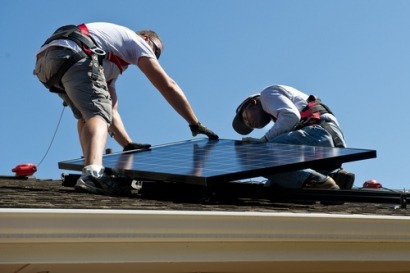
In theory, levying duties on Chinese imports where it can be proven that the Chinese are artificially suppressing the price, sounds like common sense following the US experience. However, as Andrea Maibaum from the Alliance For Affordable Solar Energy (AFASE) has argued (see our article on this issue published last Monday - http://www.renewableenergymagazine.com/article/eu-antidumping-tariffs-will-promote-jobs-and-20130513-growth-20130513), it could be that the US is actually a very poor yardstick for an EU version of an anti-dumping tariff. Indeed, the argument has been made that in fact such a duty could actually harm the European solar sector rather than protecting it.
Enter Philipp Rösler the German Vice Chancellor and Economy Minister. Mr Rösler warned yesterday that the imposition of anti-dumping charges by the EU would actually be a ‘grave mistake’. His comment on the issue comes a week before the arrival of China’s new premier, Li Keqiang, who is due to meet the Chancellor Angela Merkel in Berlin on Sunday. The warning also follows a similar announcement by the UK Solar Trade Association (STA) that the installation of solar panels in the UK could very well drop by up to 90 percent if the EU proceeds with imposing the duty on Chinese imports.
Rösler’s views effectively undermine the position of EU trade commissioner, Karel De Gucht, who recommended the tariffs initially, suggesting average duties of 47 percent. The recommendation was supported by the trade association EU ProSun which has warned that Chinese dumping could potentially destroy the EU solar manufacturing sector. However, Rösler has told the Welt am Sonntag newspaper in an interview that ‘punitive duties are the wrong instrument’ to deal with the issue.
“German industry is quite rightly very concerned about the threatened action” said Mr Rösler, “and its potential for retaliatory action by China that could affect German exports. I do expect the commission to do everything to prevent an all-out trade conflict. The commission must aim for a negotiated solution and dialogue instead of threats.”
Ms Merkel has also irritated the commission by similarly suggesting during a visit to Beijing last August, that the dispute should be resolved by negotiation. AFASE meanwhile has predicted the loss of some 242,000 jobs from the European solar sector if duties are imposed.
Further information:

